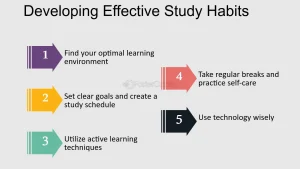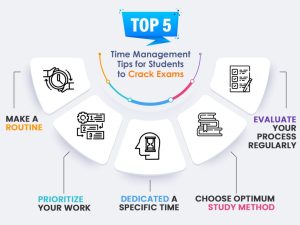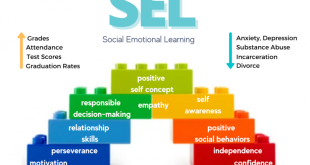In today’s fast-paced world, effective study habits and time management skills are essential for academic success. With numerous distractions and an overwhelming amount of information to process, students often struggle to maintain focus and stay organized. Developing strong study habits and mastering time management can significantly enhance learning outcomes and reduce stress. This article offers practical tips to help students cultivate effective study habits and improve their time management skills.
 Understanding Study Habits
Understanding Study Habits
Study habits refer to the consistent practices that students develop to facilitate learning. These habits can significantly impact academic performance and overall well-being. Effective study habits include:
- Regular Study Schedule: Establishing a consistent study routine helps reinforce learning and builds discipline. Set aside specific times each day dedicated to studying, and stick to this schedule as much as possible.
- Goal Setting: Setting clear, achievable goals can help students stay focused and motivated. Break larger tasks into smaller, manageable goals to make studying less overwhelming.
- Active Learning: Engage with the material actively rather than passively reading or listening. Techniques such as summarizing information in your own words, teaching concepts to others, or discussing topics with classmates can enhance understanding and retention.
Effective Study Techniques
In addition to good habits, employing effective study techniques can further improve learning outcomes. Here are some strategies to consider:
1. Use the Pomodoro Technique
The Pomodoro Technique involves breaking study sessions into short intervals, typically 25 minutes, followed by a 5-minute break. After four intervals, take a longer break of 15-30 minutes. This approach helps maintain focus and prevents burnout.
2. Create a Study Environment
Your study environment plays a crucial role in your ability to concentrate. Choose a quiet, well-lit space free from distractions. Keep your study area organized and have all necessary materials within reach to minimize interruptions.
3. Utilize Different Learning Styles
Everyone has unique learning preferences. Experiment with various study methods to find what works best for you. Visual learners may benefit from diagrams and charts, while auditory learners might prefer discussing topics aloud. Kinesthetic learners often find hands-on activities most effective.
4. Practice Retrieval
Testing yourself on the material you’ve learned is a powerful way to reinforce knowledge. Use flashcards, practice quizzes, or self-assessments to gauge your understanding and identify areas that need further review.
5. Take Notes Effectively
Develop a note-taking system that works for you. Consider using methods like the Cornell Note-Taking System, mind mapping, or bullet journaling. Organized notes make it easier to review and retain information later.
Mastering Time Management
Time management is the ability to plan and control how you spend your hours to maximize productivity. Here are some essential time management tips:
1. Prioritize Tasks
Not all tasks are created equal. Use a prioritization method, such as the Eisenhower Matrix, to categorize tasks based on urgency and importance. Focus on high-priority tasks first, ensuring that critical deadlines are met.
2. Create a Daily Schedule
Developing a daily schedule helps allocate time effectively for study sessions, classes, and other commitments. Use tools like planners, calendars, or digital apps to organize your tasks and set reminders.
3. Set Time Limits
Establish time limits for studying each subject or completing specific tasks. This can help maintain focus and prevent procrastination. Use timers or apps to keep track of time spent on each activity.
4. Avoid Multitasking
While it may seem efficient, multitasking can decrease productivity and the quality of work. Focus on one task at a time to enhance concentration and performance. Once you complete a task, move on to the next.
5. Learn to Say No
It’s essential to recognize your limits and avoid overcommitting. If you have too many obligations, prioritize your responsibilities and learn to say no to additional tasks that may interfere with your study time.
Maintaining Balance
While studying and managing time effectively are critical for academic success, maintaining a healthy balance is equally important. Here are some tips to ensure you stay balanced:
1. Incorporate Breaks and Leisure Time
Taking regular breaks helps recharge your mind and prevents burnout. Engage in leisure activities, exercise, or spend time with friends and family to maintain a healthy work-life balance.
2. Practice Self-Care
Prioritize self-care by ensuring you get enough sleep, eat nutritious meals, and engage in physical activity. A healthy lifestyle contributes to improved concentration, memory, and overall well-being.
3. Reflect on Progress
Regularly evaluate your study habits and time management strategies. Reflect on what works and what doesn’t, making adjustments as needed. This self-awareness can help you stay on track and continuously improve.
 Conclusion
Conclusion
Effective study habits and time management are essential skills for academic success. By establishing a consistent study routine, employing active learning techniques, and mastering time management strategies, students can enhance their learning experiences and achieve their educational goals.
Remember that finding the right balance between study and leisure is crucial for maintaining motivation and well-being. By prioritizing self-care and reflection, students can create a sustainable approach to learning that fosters growth and success. Embrace these practices, and you’ll be well on your way to becoming a more effective and confident learner.


